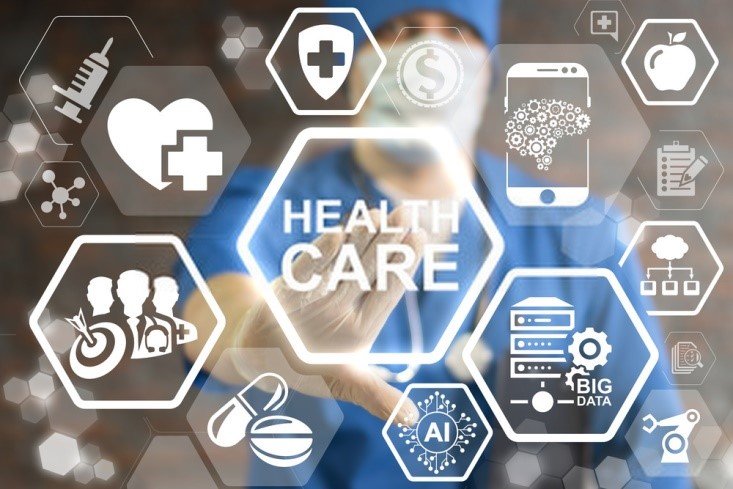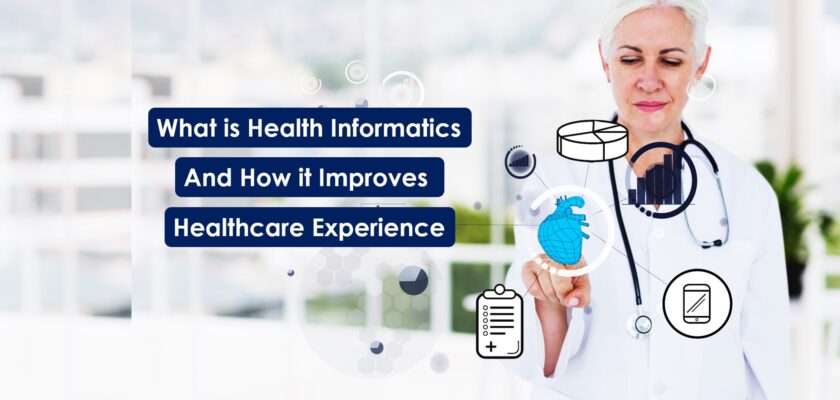Informatics, or Health Informatics, combines the information technology with the value-based healthcare framework to transform the current scenario of global health.
The growth of the aging populations and the steady rise of chronic diseases have shifted the focus of the healthcare industry. Instead of short-term cures of diseases, the global healthcare system now seeks to prevent diseases and establish the overall well-being of people.
Health Informatics focuses on using communication and information technology in the healthcare framework to provide more patient-centric care at reduced costs. With the patient-centric approach to healthcare Australia is bound to achieve ground-breaking transformation in its healthcare system.
Health Informatics has many advantages that help in the improvement of the global healthcare system.
Let’s take a look at some of the benefits of Health Informatics.
Increased productivity
Healthcare is one of the aspects of our lives where we don’t think before spending. To ensure our well-being, we are ready to pay the highest price we can afford. But is it really helping us?
The traditional healthcare system follows the fee-for-service model, where you pay for every step of the diagnostic. More often than not, you end up paying a large sum of money without getting any real treatment.
The study of medicine is often referred to as “practice” for a good reason. It is because the field of study is constantly learned and growing to accommodate more efficient treatment.
Health Informatics offers a platform that enables easy access to knowledge about diseases, therapies, and medicines. The easy flow of knowledge between patients and their caregivers enhances the efficiency of the medical practice and increases its productivity.
Patient-centric care
To increase the productivity of healthcare at a sustainable rate, Informatics emphasizes on patient-centric care. It values and encourages the participation of patients in devising the treatment strategy. Moreover, it avoids unnecessarily expensive diagnostic tests.
Informatics provides the patients with their recorded medical history and offers them a relevant recommendation. This knowledge empowers them, and they take their treatment more seriously. Well-informed patients also interact with medical professionals actively, which makes the treatment more productive.
Better outcomes
Increased productivity of medical practice is a sure indicator of a better outcome.
In the traditional healthcare system, we witness a lack of proper coordination that creates room for errors and mistakes. These affect the outcomes mildly and at times even severely.
Healthcare Informatics improves on several aspects of the traditional healthcare system to provide better outcomes.
Proper coordination
Most of the complex treatment requires more than one specialist to work together. Proper coordination between the different medical professionals helps in keep the process hassle-free and secure.
To simplify the process of coordination, Health Informatics arranges the patient’s data- X-ray reports, blood pressure; heart rate- stores it systematically. It allows easy access to the data whenever required, and leads to better outcomes.
Impersonalized care
Health Informatics uses software and cloud storage to create a maintain record of a patient’s health history. In this manner, determining the cause of any disease and its treatment becomes much easier.
The process requires minimum to no interaction between the patients and their doctors. While many criticize this impersonal approach to healthcare, we cannot deny this process is efficient and error-proof.
Advanced Healthcare Products
The lack of advanced healthcare products often affects the outcome of medical treatments.
Informatics creates awareness about the leading suppliers of advanced healthcare products and equipment for patients and medical professionals.
LSR Healthcare is an Australian healthcare product supplier. The company supplies health care products such as dental equipment, patient monitoring systems, etc. In Australia and New Zealand.

Improved experiences
The traditional healthcare system seldom pays attention to the experiences of the patients in the healthcare process.
Health Informatics encourages patient-centric care; it values the patient’s experience and strives to enhance it. The central goal of Informatics is to eradicate all possibilities of error from the traditional healthcare system to improve the patient’s experience.
Machine Learning (ML) and Artificial Intelligence (AI)
Even the best surgeons in the world are not immune to errors. The number of surgeries that go wrong due to human error is steadily increasing. To solve this problem, Informatics has decided to introduce AI and ML in complex medical procedures.
Medical robots, under the supervision of medical professionals, can work tirelessly and reduce the risk of human errors.
Privacy
Informatics has access to a considerable amount of patient’s data, and thus the responsibility to keep them confidential. Without any safety measures in place, patients will hesitate to share data.
To remedy this, Informatics uses blockchain technology. Blockchain technology offers new methods of data encryptions to promote trust in the patients and offer them an improved experience.
Final Takeaway
Health Informatics is introduced to overcome the flaws and shortcomings of the traditional healthcare Australia system. Medical Science is, indeed, continually progressing. However, to give this progress a sustainable and productive direction, we need Informatics.
Informatics ensures that patients remain in the centre of all healthcare practices. It also provides them with access to the in-depth knowledge of diseases and their treatments.

